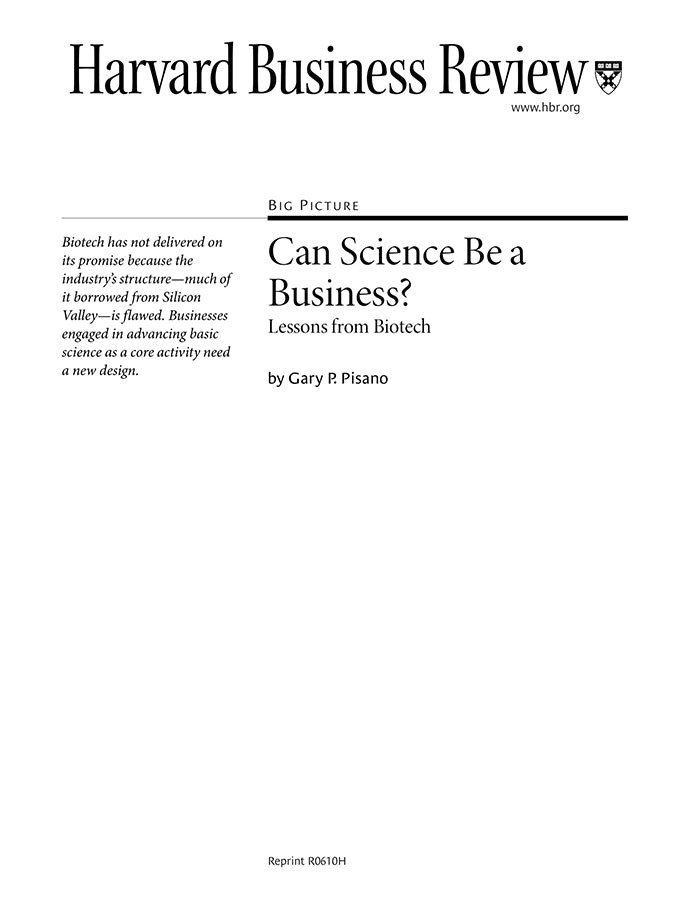Can Science Be a Business? Lessons from Biotech
受取状況を読み込めませんでした
In 1976, Genentech, the first biotechnology company, was founded by a young venture capitalist and a university professor to exploit recombinant DNA technology. Thirty years and more than $300 billion in investments later, only a handful of biotech firms have matched Genentech's success or even shown a profit. No avalanche of new drugs has hit the market, and the long-awaited breakthrough in R&D productivity has yet to materialize. This disappointing performance raises a question: Can organizations motivated by the need to make profits and please shareholders successfully conduct basic scientific research as a core activity? The question has largely been ignored, despite intense debate over whether business's invasion of basic science--long the domain of universities and nonprofit research institutions--is limiting access to discoveries, thereby slowing advances in science. Biotech has not lived up to its promise, says the author, because its anatomy, which has worked well in other high-tech sectors, can't handle the fundamental challenges facing drug R&D: profound, persistent uncertainty and high risks rooted in the limited knowledge of human biology; the need for the diverse disciplines involved in drug discovery to work together in an integrated fashion; and barriers to learning, including tacit knowledge and murky intellectual property rights, which can slow the pace of scientific advance. A more suitable anatomy would include increased vertical integration; a smaller number of closer, longer collaborations; an emphasis by universities on sharing rather than patenting scientific discoveries; more cross-disciplinary academic research; and more federal and private funding for translational research, which bridges basic and applied science. With such modifications, science can be a business.
【書誌情報】
ページ数:16ページ
サイズ:A4
商品番号:HBSP-R0610H
発行日:2006/10/1
登録日:2012/3/28


